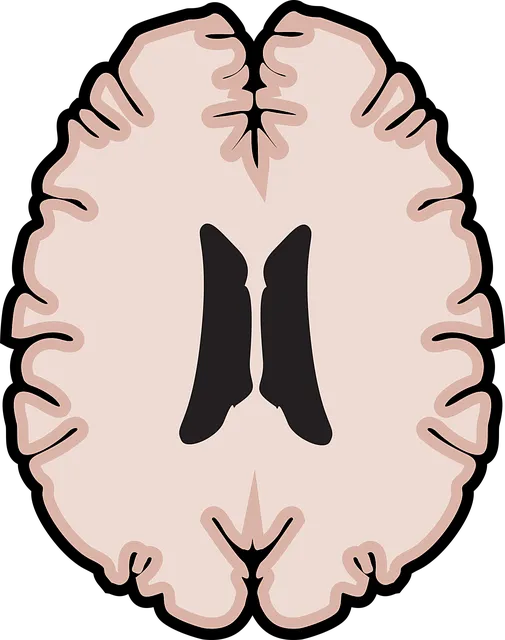Lone Tree Kaiser Permanente mental health locations focus on teaching effective emotion regulation techniques, enhancing clients' resilience and overall quality of life. Through evidence-based practices tailored to individual needs, they empower patients with coping strategies including mindfulness, cognitive reframing, and social skills training. This holistic approach, integrated into daily routines, promotes emotional well-being for all ages, enriching relationships within the community.
Emotion regulation techniques are essential tools for maintaining mental well-being, especially in today’s fast-paced world. This article explores the significance of these skills and provides insights into how organizations like Lone Tree Kaiser Permanente Mental Health Locations are supporting individuals through effective programs. We’ll delve into various techniques, offering a comprehensive guide for both children and adults to manage emotions healthily. Additionally, we discuss strategies for integrating these practices into daily life, fostering lasting positive changes.
- Understanding Emotion Regulation: Why It Matters for Mental Well-being
- Lone Tree Kaiser Permanente Mental Health Locations: Offering Supportive Services
- Common Techniques for Managing Emotions Effectively
- Teaching Emotion Regulation to Children and Adults Alike
- Integrating These Techniques into Daily Life for Lasting Change
Understanding Emotion Regulation: Why It Matters for Mental Well-being

Emotion regulation is a vital skill that plays a significant role in maintaining mental well-being. It involves understanding and managing one’s emotional responses, ensuring they are appropriate and constructive rather than overwhelming or destructive. This process is essential for navigating life’s challenges and stressful situations, promoting overall resilience, and fostering healthy relationships.
At Lone Tree Kaiser Permanente mental health locations, we recognize the impact of effective emotion regulation techniques on our clients’ lives. Teaching individuals to recognize and manage their emotions can lead to increased confidence, better coping strategies, and enhanced quality of life. Moreover, it contributes to building resilience, enabling folks to bounce back from setbacks and adversity with greater ease. Our healthcare providers undergo comprehensive Cultural Competency Training to ensure they can guide patients through this process effectively, tailoring techniques to individual needs and cultural backgrounds.
Lone Tree Kaiser Permanente Mental Health Locations: Offering Supportive Services

Lone Tree Kaiser Permanente mental health locations play a pivotal role in supporting individuals seeking assistance for their emotional well-being. These facilities are equipped to offer a range of services tailored to address various mental health concerns, from stress and anxiety relief to more severe conditions. The professionals at these locations employ evidence-based practices, including communication strategies designed to enhance understanding and coping mechanisms.
By prioritizing Mental Health Awareness, Lone Tree Kaiser Permanente ensures that individuals can access the care they need in a safe and supportive environment. Through individual therapy, group support sessions, and educational workshops, they empower patients with the tools necessary for effective emotion regulation. This comprehensive approach fosters resilience and promotes healthy lifestyle changes, ultimately contributing to improved mental health outcomes.
Common Techniques for Managing Emotions Effectively

Emotion regulation is a vital skill that can be taught and learned, offering individuals greater control over their emotional responses. At Lone Tree Kaiser Permanente mental health locations, several evidence-based techniques are utilized to help clients manage their emotions effectively. One common approach involves cognitive reappraisal, where individuals challenge negative thought patterns and reframe situations in a more positive or realistic light. This strategy encourages a shift in perspective, enabling people to respond to emotional triggers with increased calmness and clarity.
Additionally, mindfulness practices have gained prominence for their ability to enhance self-awareness and emotional intelligence. Through techniques like meditation and deep breathing exercises, individuals can cultivate present-moment awareness, observe their emotions without judgment, and develop a greater sense of detachment from distressing feelings. Incorporating Social Skills Training and Empathy Building Strategies, often tailored to cultural sensitivities in mental healthcare practice, further equips clients with the interpersonal tools needed to navigate emotional interactions more skillfully.
Teaching Emotion Regulation to Children and Adults Alike

Emotion regulation techniques are valuable tools that can benefit individuals across the lifespan, from children to adults. At Lone Tree Kaiser Permanente mental health locations, professionals often incorporate these strategies into their practices to support clients in managing and understanding their emotions effectively. Teaching emotion regulation isn’t limited to therapists; parents and caregivers also play a significant role in helping young ones develop emotional intelligence.
Through various methods, such as mindfulness exercises, cognitive reframing, and conflict resolution techniques, individuals can learn to identify and process their feelings constructively. Risk management planning for mental health professionals is crucial when teaching these skills, ensuring a safe and supportive environment. By integrating stress reduction methods into daily routines, both children and adults can enhance their resilience, improve communication (including conflict resolution techniques), and foster better overall mental well-being, ultimately enriching their interactions and relationships with others in the community and at Lone Tree Kaiser Permanente.
Integrating These Techniques into Daily Life for Lasting Change

Integrating emotion regulation techniques into daily life is key to achieving lasting change, especially in promoting emotional well-being. At Lone Tree Kaiser Permanente mental health locations, healthcare providers are encouraged to adopt strategies that go beyond mere treatment sessions. Techniques like mindfulness meditation, deep breathing exercises, and cognitive reframing can be woven into the fabric of one’s routine. This could mean starting each day with a brief meditation to center oneself or using specific breathing techniques during moments of stress at work, such as during conflicts with patients or colleagues.
By regularly practicing these techniques, healthcare providers not only enhance their own emotional resilience but also model healthy coping mechanisms for the individuals they serve. This holistic approach, which combines Burnout Prevention Strategies for Healthcare Providers and Conflict Resolution Techniques, can lead to improved patient outcomes and job satisfaction. Incorporating Emotional Well-being Promotion Techniques into daily life creates a sustainable environment where self-care becomes an integral part of one’s professional journey, mirroring the importance of these practices in fostering overall mental health.
Emotion regulation is a powerful tool for enhancing mental well-being, as evidenced by the supportive services offered at Lone Tree Kaiser Permanente mental health locations. By understanding and practicing techniques like mindfulness, cognitive reframing, and acceptance, individuals can effectively manage their emotions, leading to improved resilience and overall quality of life. Teaching these skills to both children and adults equips them with valuable tools for navigating life’s challenges. Integrating emotion regulation into daily routines fosters lasting positive change, enabling people to thrive in a complex world.






